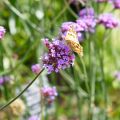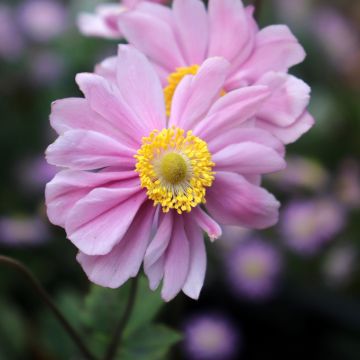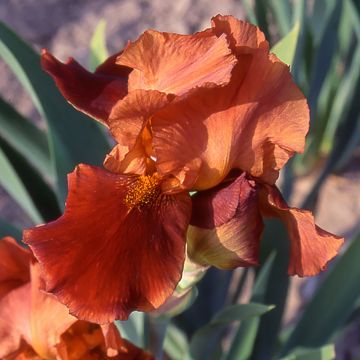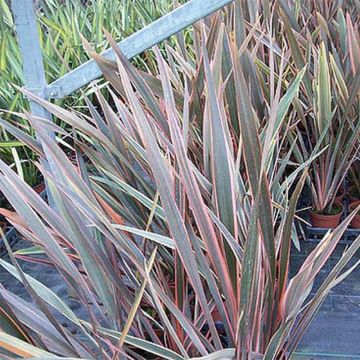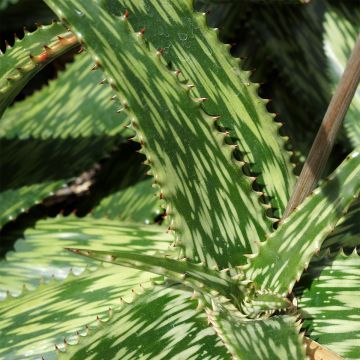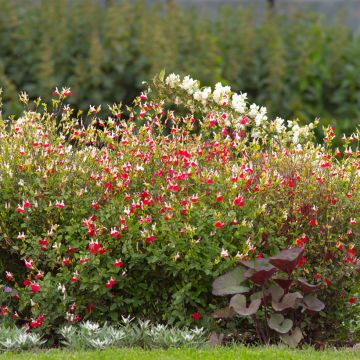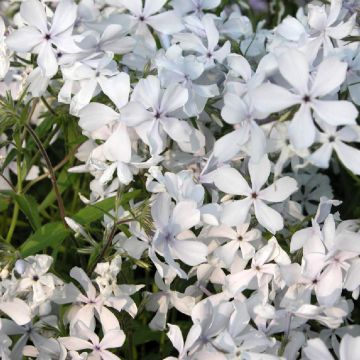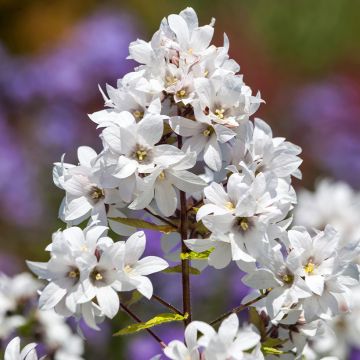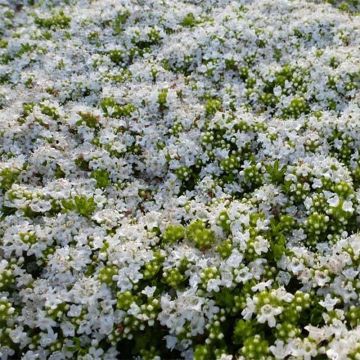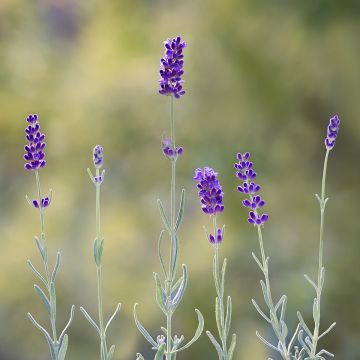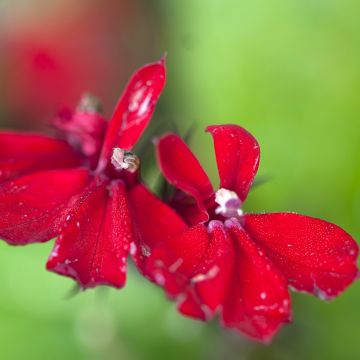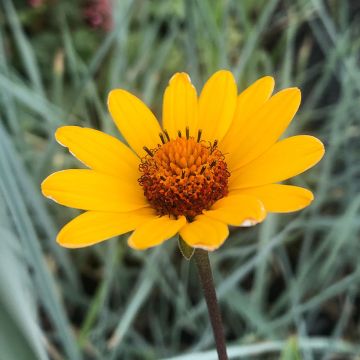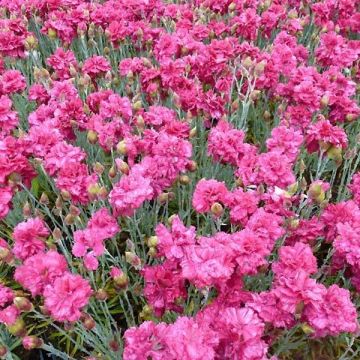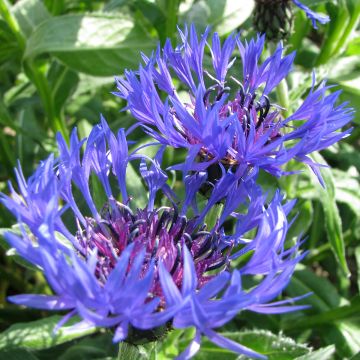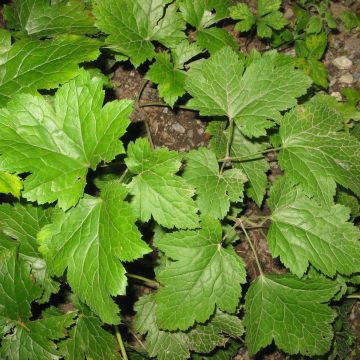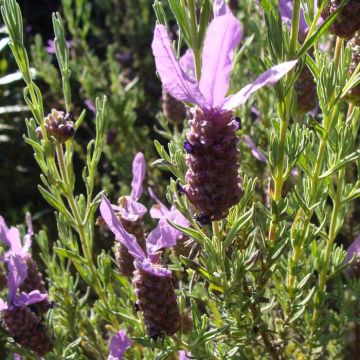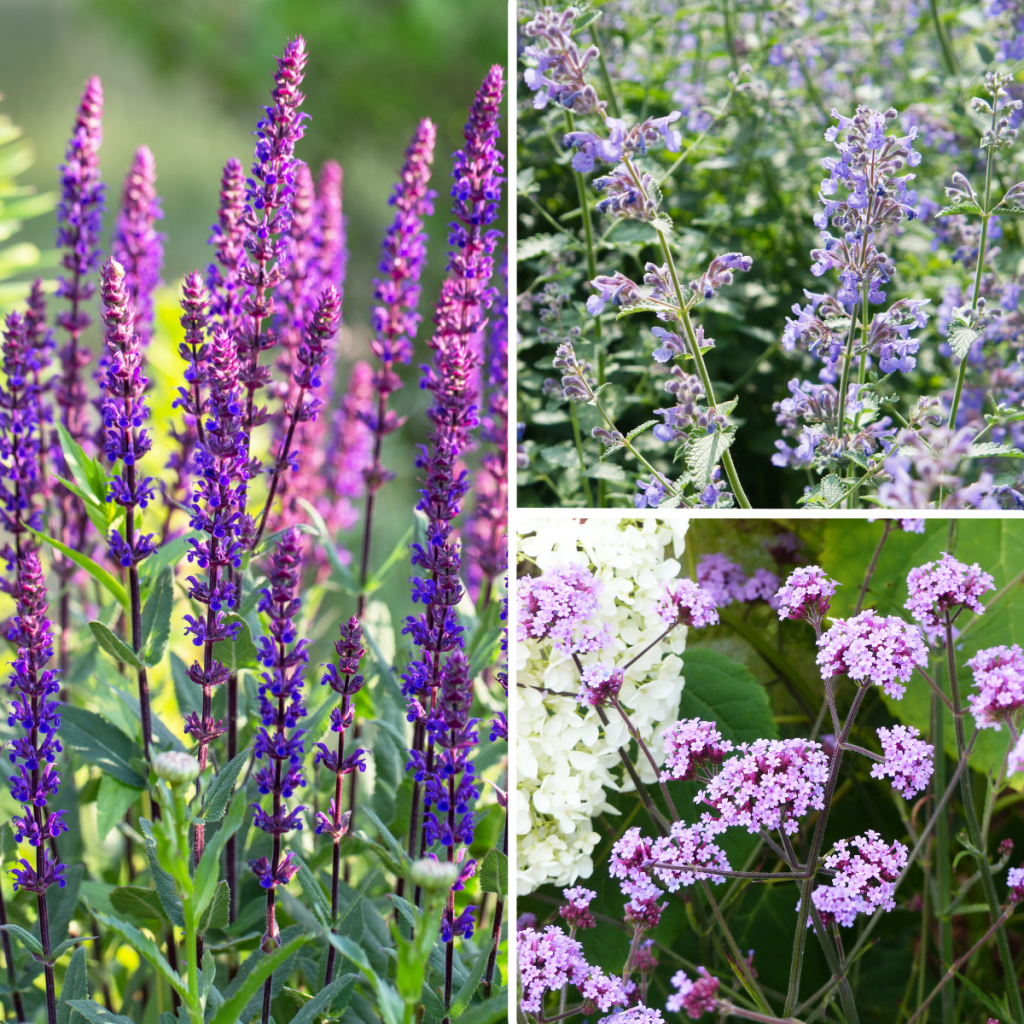

Collection of perennial plants in shades of blue and mauve for sunny areas.
Collection of perennial plants in shades of blue and mauve for sunny areas.
Nepeta, Verbena, Salvia
Field of plants arrived in good condition; They should grow well.
Gina, 17/05/2023
This item cannot be shipped to the selected country
Delivery charge from €5.90
Delivery to Corse prohibited
More information
Schedule delivery date,
and select date in basket
This plant carries a 12 months recovery warranty
More information
We guarantee the quality of our plants for a full growing cycle, and will replace at our expense any plant that fails to recover under normal climatic and planting conditions.
From €5.90 for pickup delivery and €6.90 for home delivery
Express home delivery from €8.90.
Delivery to Corse prohibited: UE law prohibits the import of this plant from mainland France to Corse as part of the fight against Xylella fastidiosa. Please accept our sincere apologies.
More information
Does this plant fit my garden?
Set up your Plantfit profile →
Collection items (3 plants)
Description
The collection consists of 3 plants:
- x 1 Nepeta x faassenii 'Walker's Low': A compact and spreading perennial with a height of 60 cm (24in) when in flower. The grey-green, aromatic foliage is semi-evergreen in winter. Flowering from June (sometimes earlier in favourable climates) to October, with a short resting period in the middle of summer. Its long floral spikes are an intense lavender blue.
- x 1 Verbena bonariensis 'Lollipop': A more compact variety than the usual Buenos Aires verbena, reaching a height of 60 cm (24in). Its lavender flowers are grouped in small bouquets with a diameter of 3 to 5 cm (1 to 2in). The flowering lasts throughout the summer. A short-lived perennial, it self-seeds readily in light soil. This verbena is hardy up to -10°C (14°F).
- x 1 Salvia nemorosa 'Caradonna': This sage produces 50 cm (20in) tall, brown-purple stems, bearing small flowers of intense violet, grouped in long spikes on a tuft of dark green, aromatic foliage. It blooms from May to September.
Individually labelled.
These perennials easily integrate into gardens of all sizes and styles, and can be grown without difficulty in many regions. Their blue and mauve flowers blend perfectly with the range of mauve, blue, and white tones, creating a soft and romantic atmosphere found in English roses, phlox, and peonies, for example. For a contrasting flower bed, in technicolor, think of adding orange of California poppies, yellow of marigolds, and red of poppies.
Tips:
- Plant 6 plants per square meter to achieve a dense flowerbed within 3-4 years, or 9 plants per square metre for a dense flowerbed in just 2 years.
- Avoid soils that are both very compact and wet in winter.
Report an error about the product description
Flowering
Foliage
Plant habit
Safety measures
Botanical data
Nepeta, Verbena, Salvia
Cultivar or hybrid
atteintescutaneomuqueuses
Cette plante peut provoquer l'apparition de réactions cutanées indésirables, une atteinte des yeux, ou des difficultés respiratoires si elle est ingérée.
Ne la plantez pas là où de jeunes enfants peuvent évoluer. Evitez tout contact avec la peau: privilégiez l'emploi de gants pour la manipuler. En cas de contact, lavez-vous soigneusement les mains et rincez abondamment à l'eau la zone concernée. Lavez les vêtements entrés en contact. En cas de réaction cutanée, contactez votre médecin ou le centre antipoison le plus proche de chez vous. En cas d'atteinte étendue ou de difficultés respiratoires, appelez immédiatement le 15 ou le 112.Pensez à conserver l'étiquette de la plante, à la photographier ou à noter son nom, afin de faciliter le travail des professionnels de santé.
Davantage d'informations sur https://plantes-risque.info
Other Perennials A to Z
Planting and care
Nepeta Walkers Low, a versatile plant, prefers light, well-drained soils, even poor, limestone and rocky. This very hardy plant can die in winter in waterlogged soil. In heavy soil, it is preferable to elevate the planting, by planting this catmint in a rockery, above a wall or in a raised bed with soil enriched with draining materials. Install the catmint in full sun. In heavy soils, dig a hole 3 times larger than the volume of the pot and mix 1/3 gravel and 1/3 sand with your topsoil. In summer, prune faded flowers to encourage new flowering and the growth of fresh foliage.
Planting period
Intended location
Care
-
, onOrder confirmed
Reply from on Promesse de fleurs
Summer flowering perennials
Haven't found what you were looking for?
Hardiness is the lowest winter temperature a plant can endure without suffering serious damage or even dying. However, hardiness is affected by location (a sheltered area, such as a patio), protection (winter cover) and soil type (hardiness is improved by well-drained soil).

Photo Sharing Terms & Conditions
In order to encourage gardeners to interact and share their experiences, Promesse de fleurs offers various media enabling content to be uploaded onto its Site - in particular via the ‘Photo sharing’ module.
The User agrees to refrain from:
- Posting any content that is illegal, prejudicial, insulting, racist, inciteful to hatred, revisionist, contrary to public decency, that infringes on privacy or on the privacy rights of third parties, in particular the publicity rights of persons and goods, intellectual property rights, or the right to privacy.
- Submitting content on behalf of a third party;
- Impersonate the identity of a third party and/or publish any personal information about a third party;
In general, the User undertakes to refrain from any unethical behaviour.
All Content (in particular text, comments, files, images, photos, videos, creative works, etc.), which may be subject to property or intellectual property rights, image or other private rights, shall remain the property of the User, subject to the limited rights granted by the terms of the licence granted by Promesse de fleurs as stated below. Users are at liberty to publish or not to publish such Content on the Site, notably via the ‘Photo Sharing’ facility, and accept that this Content shall be made public and freely accessible, notably on the Internet.
Users further acknowledge, undertake to have ,and guarantee that they hold all necessary rights and permissions to publish such material on the Site, in particular with regard to the legislation in force pertaining to any privacy, property, intellectual property, image, or contractual rights, or rights of any other nature. By publishing such Content on the Site, Users acknowledge accepting full liability as publishers of the Content within the meaning of the law, and grant Promesse de fleurs, free of charge, an inclusive, worldwide licence for the said Content for the entire duration of its publication, including all reproduction, representation, up/downloading, displaying, performing, transmission, and storage rights.
Users also grant permission for their name to be linked to the Content and accept that this link may not always be made available.
By engaging in posting material, Users consent to their Content becoming automatically accessible on the Internet, in particular on other sites and/or blogs and/or web pages of the Promesse de fleurs site, including in particular social pages and the Promesse de fleurs catalogue.
Users may secure the removal of entrusted content free of charge by issuing a simple request via our contact form.
The flowering period indicated on our website applies to countries and regions located in USDA zone 8 (France, the United Kingdom, Ireland, the Netherlands, etc.)
It will vary according to where you live:
- In zones 9 to 10 (Italy, Spain, Greece, etc.), flowering will occur about 2 to 4 weeks earlier.
- In zones 6 to 7 (Germany, Poland, Slovenia, and lower mountainous regions), flowering will be delayed by 2 to 3 weeks.
- In zone 5 (Central Europe, Scandinavia), blooming will be delayed by 3 to 5 weeks.
In temperate climates, pruning of spring-flowering shrubs (forsythia, spireas, etc.) should be done just after flowering.
Pruning of summer-flowering shrubs (Indian Lilac, Perovskia, etc.) can be done in winter or spring.
In cold regions as well as with frost-sensitive plants, avoid pruning too early when severe frosts may still occur.
The planting period indicated on our website applies to countries and regions located in USDA zone 8 (France, United Kingdom, Ireland, Netherlands).
It will vary according to where you live:
- In Mediterranean zones (Marseille, Madrid, Milan, etc.), autumn and winter are the best planting periods.
- In continental zones (Strasbourg, Munich, Vienna, etc.), delay planting by 2 to 3 weeks in spring and bring it forward by 2 to 4 weeks in autumn.
- In mountainous regions (the Alps, Pyrenees, Carpathians, etc.), it is best to plant in late spring (May-June) or late summer (August-September).
The harvesting period indicated on our website applies to countries and regions in USDA zone 8 (France, England, Ireland, the Netherlands).
In colder areas (Scandinavia, Poland, Austria...) fruit and vegetable harvests are likely to be delayed by 3-4 weeks.
In warmer areas (Italy, Spain, Greece, etc.), harvesting will probably take place earlier, depending on weather conditions.
The sowing periods indicated on our website apply to countries and regions within USDA Zone 8 (France, UK, Ireland, Netherlands).
In colder areas (Scandinavia, Poland, Austria...), delay any outdoor sowing by 3-4 weeks, or sow under glass.
In warmer climes (Italy, Spain, Greece, etc.), bring outdoor sowing forward by a few weeks.


































